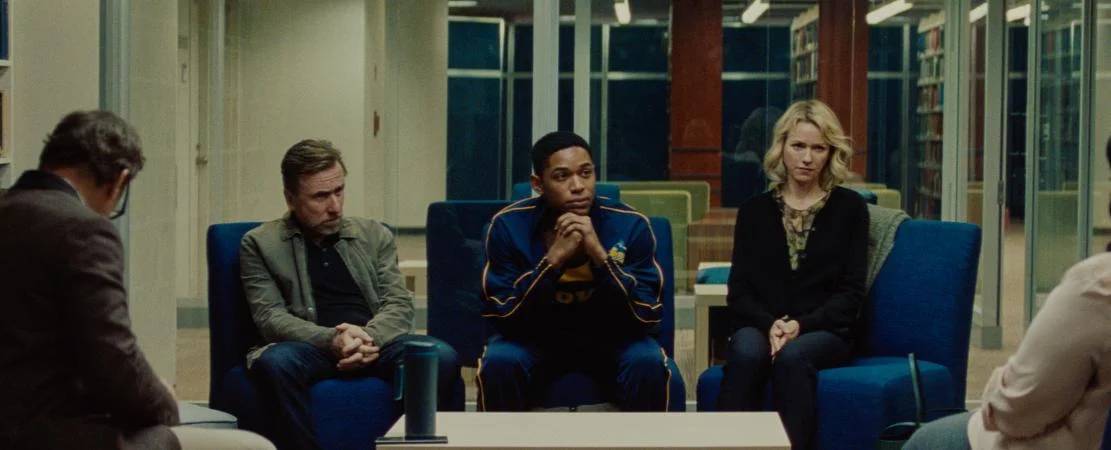Film Review: Luce
Photo Courtesy Dream Factory Group
By Erik Nielsen
“Why you, Luce?” asks D, a track runner relying on an athletic scholarship who just got kicked off the track team, “how many times did we blaze man?” He isn’t the protagonist but he is a useful political pawn in a game of ideology at a prominent high school. The aforementioned “D” is black, just like the title character Luce but as D points out, they’re not the same. D’s angry because it was his locker that was searched, without warning, by Ms. Wilson (Octavia Spencer) who finds marijuana in his locker. But why him? Why is Luce the lucky one?
Luce, the title character, is played in many shades by talented young actor Kelvin Harrison Jr. - he’s the perfect kid. A former child soldier in Africa, he’s now remade himself, thanks to long, long years of therapy and rehabilitation from his adoptive parents, played by the exceptional Tim Roth and Naomi Watts. They adopted him when he was seven. Now, in his senior year of high school, he’s an All-American track star and valedictorian who will have his pick of colleges. They’re equally supportive but also suspicious of their son, who has become less transparent about his world. You begin to notice, as the film slowly unravels, the way he approaches debates is how he engages in everyday conversations. He sees where arguments can be exploited and uses it to wiggle his way out of conversations where he talks a lot but reveals nothing.
This tactic is ployed throughout the film as Luce’s history teacher Ms. Wilson becomes suspicious of him because of his latest assignment. The students were to pick any major historical figure and make an argument from their perspective. Luce chose to write from the vantage point of someone who believed ethnic cleansing would make the world a better place. Because of his background, the paper leaves Ms. Wilson rattled. She decides to search his locker, without his knowledge and finds illegal fireworks. But unlike what she did with D, she decides to hand it over to Luce’s parents. Still, Luce’s mom is curious and unsure of what the teacher thinks Luce is capable of, but she is also wary of her son, who denies any knowledge of having the fireworks.
The scorching confrontations between the parents and their son are heartbreaking. Each character has something they want to protect - whether it be the sanctity of their marriage, their son, or their own perspective on life - everything and anything is at stake. The director successfully shows how we can only hang onto each other’s words and that is dependent on how much trust we have in the other.
The film’s plot, its characters, their motivations - are built like a labyrinth of tension that rides from the jump. You can feel a high wire act of social jousting in every scene as Luce becomes increasingly diabolical about his motivations, his intentions towards Ms. Wilson, and his actions towards his parents and peers. We’re never quite sure of the main point or Luce’s true motivations. It isn’t until the final confrontation between the teacher and student that true intentions are revealed. This is incendiary filmmaking.
At the heart of Luce, is an argument against tokenism, using people to make political points and the many shades in which liberal, white America places expectations on black kids. What the director, Julius Onah, has done is turn debate into a sociological thriller, where our own ideology is twisted, churned and eviscerated. Luce is the best movie I’ve seen this year and it will be a talking point once it makes its theatrical run. If Get Out was a metaphor, then Luce is real life, and it isn’t pretty.








